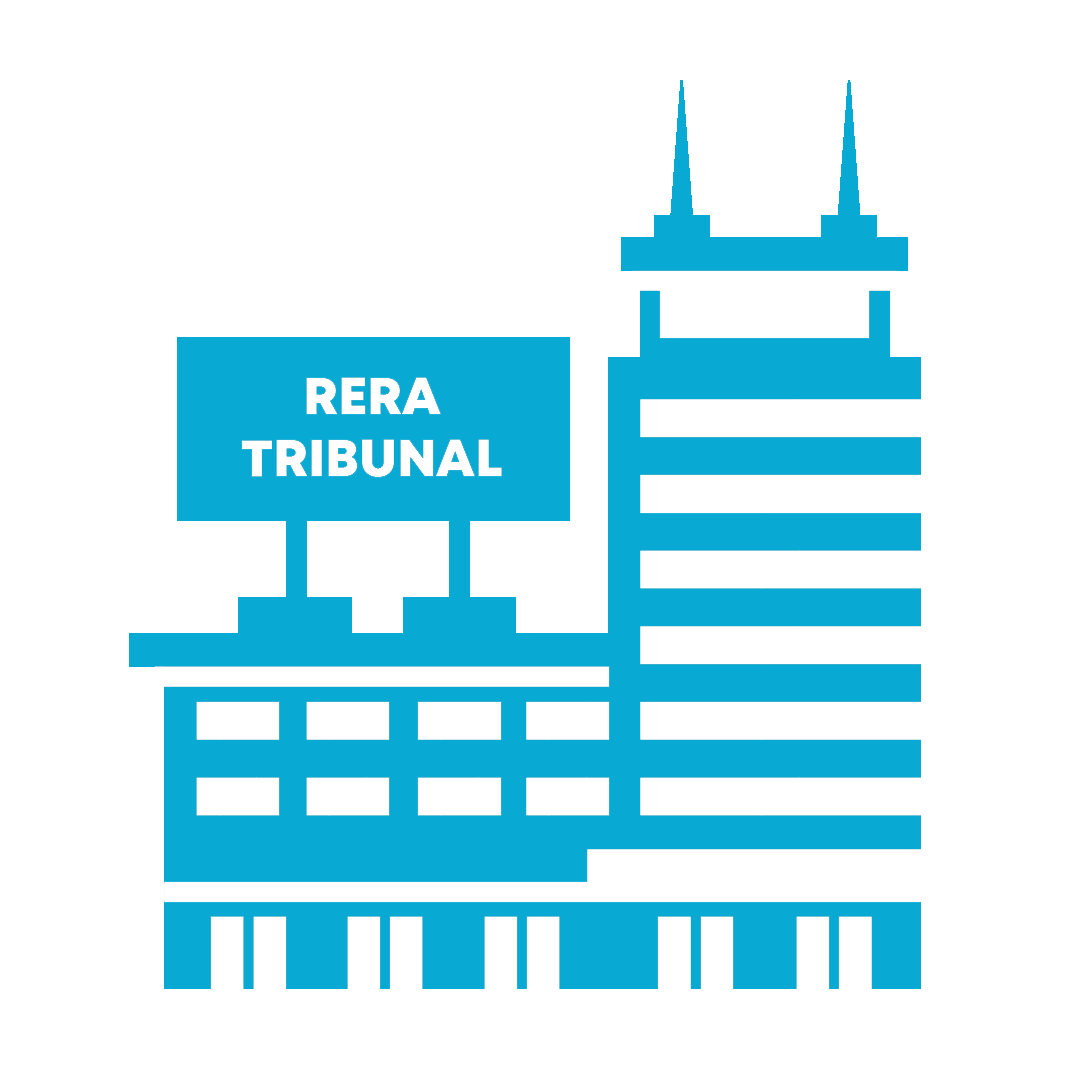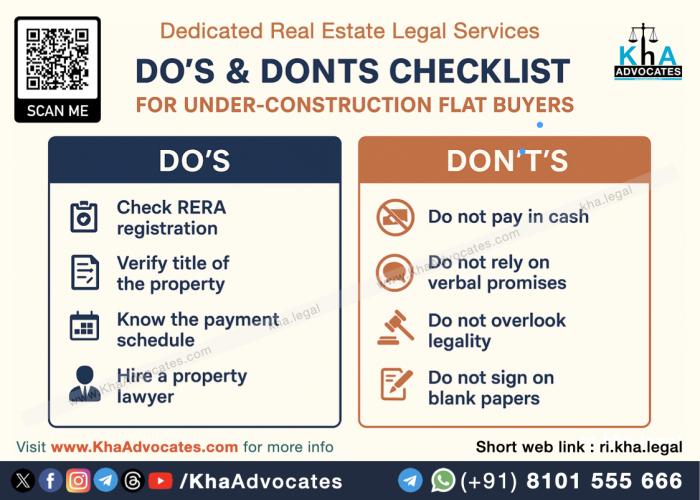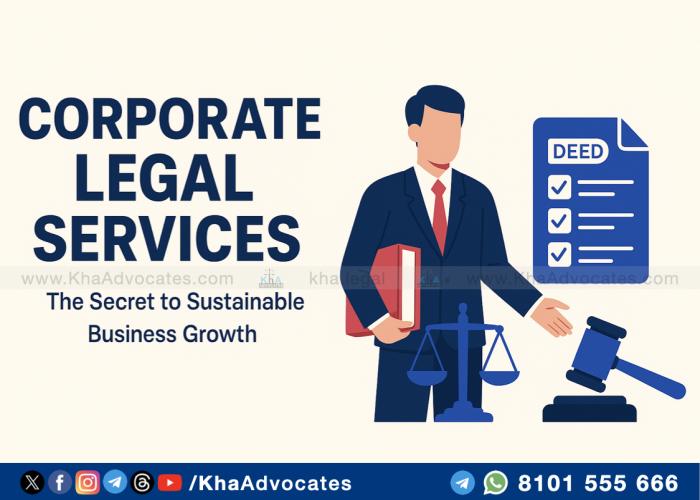
Our firm is a leading provider of comprehensive legal services, renowned for our commitment to excellence and client-centric approach. With a rich history of delivering outstanding results, we offer a diverse range of practice areas and industry expertise to meet the unique needs of our clients. Our firm prides itself on fostering long-term relationships built on trust, integrity, and a steadfast dedication to achieving favourable outcomes for our clients.

Lorem Ipsum is simply dummy text of the printing and typesetting industry. Lorem Ipsum has been the industry's standard dummy text ever since the 1500s, when an unknown printer took a galley of type and scrambled it to make a type specimen book. It has survived not only five centuries, but also the leap into electronic typesetting, remaining essentially unchanged. It was popularised in the 1960s with the release of Letraset sheets containing Lorem Ipsum passages, and more recently with desktop publishing software like Aldus PageMaker including versions of Lorem Ipsum.
Supreme Court

Lorem Ipsum is simply dummy text of the printing and typesetting industry. Lorem Ipsum has been the industry's standard dummy text ever since the 1500s, when an unknown printer took a galley of type and scrambled it to make a type specimen book. It has survived not only five centuries, but also the leap into electronic typesetting, remaining essentially unchanged. It was popularised in the 1960s with the release of Letraset sheets containing Lorem Ipsum passages, and more recently with desktop publishing software like Aldus PageMaker including versions of Lorem Ipsum.
High Court

Lorem Ipsum is simply dummy text of the printing and typesetting industry. Lorem Ipsum has been the industry's standard dummy text ever since the 1500s, when an unknown printer took a galley of type and scrambled it to make a type specimen book. It has survived not only five centuries, but also the leap into electronic typesetting, remaining essentially unchanged. It was popularised in the 1960s with the release of Letraset sheets containing Lorem Ipsum passages, and more recently with desktop publishing software like Aldus PageMaker including versions of Lorem Ipsum.
District Court

Lorem Ipsum is simply dummy text of the printing and typesetting industry. Lorem Ipsum has been the industry's standard dummy text ever since the 1500s, when an unknown printer took a galley of type and scrambled it to make a type specimen book. It has survived not only five centuries, but also the leap into electronic typesetting, remaining essentially unchanged. It was popularised in the 1960s with the release of Letraset sheets containing Lorem Ipsum passages, and more recently with desktop publishing software like Aldus PageMaker including versions of Lorem Ipsum.
Sub Division Court

Lorem Ipsum is simply dummy text of the printing and typesetting industry. Lorem Ipsum has been the industry's standard dummy text ever since the 1500s, when an unknown printer took a galley of type and scrambled it to make a type specimen book. It has survived not only five centuries, but also the leap into electronic typesetting, remaining essentially unchanged. It was popularised in the 1960s with the release of Letraset sheets containing Lorem Ipsum passages, and more recently with desktop publishing software like Aldus PageMaker including versions of Lorem Ipsum.
Consumer Commission

Lorem Ipsum is simply dummy text of the printing and typesetting industry. Lorem Ipsum has been the industry's standard dummy text ever since the 1500s, when an unknown printer took a galley of type and scrambled it to make a type specimen book. It has survived not only five centuries, but also the leap into electronic typesetting, remaining essentially unchanged. It was popularised in the 1960s with the release of Letraset sheets containing Lorem Ipsum passages, and more recently with desktop publishing software like Aldus PageMaker including versions of Lorem Ipsum.
Commercial Court

Lorem Ipsum is simply dummy text of the printing and typesetting industry. Lorem Ipsum has been the industry's standard dummy text ever since the 1500s, when an unknown printer took a galley of type and scrambled it to make a type specimen book. It has survived not only five centuries, but also the leap into electronic typesetting, remaining essentially unchanged. It was popularised in the 1960s with the release of Letraset sheets containing Lorem Ipsum passages, and more recently with desktop publishing software like Aldus PageMaker including versions of Lorem Ipsum.
CAT

Lorem Ipsum is simply dummy text of the printing and typesetting industry. Lorem Ipsum has been the industry's standard dummy text ever since the 1500s, when an unknown printer took a galley of type and scrambled it to make a type specimen book. It has survived not only five centuries, but also the leap into electronic typesetting, remaining essentially unchanged. It was popularised in the 1960s with the release of Letraset sheets containing Lorem Ipsum passages, and more recently with desktop publishing software like Aldus PageMaker including versions of Lorem Ipsum.
DRT

Lorem Ipsum is simply dummy text of the printing and typesetting industry. Lorem Ipsum has been the industry's standard dummy text ever since the 1500s, when an unknown printer took a galley of type and scrambled it to make a type specimen book. It has survived not only five centuries, but also the leap into electronic typesetting, remaining essentially unchanged. It was popularised in the 1960s with the release of Letraset sheets containing Lorem Ipsum passages, and more recently with desktop publishing software like Aldus PageMaker including versions of Lorem Ipsum.
Labour Commission

Lorem Ipsum is simply dummy text of the printing and typesetting industry. Lorem Ipsum has been the industry's standard dummy text ever since the 1500s, when an unknown printer took a galley of type and scrambled it to make a type specimen book. It has survived not only five centuries, but also the leap into electronic typesetting, remaining essentially unchanged. It was popularised in the 1960s with the release of Letraset sheets containing Lorem Ipsum passages, and more recently with desktop publishing software like Aldus PageMaker including versions of Lorem Ipsum.
RERA Tribunal

Lorem Ipsum is simply dummy text of the printing and typesetting industry. Lorem Ipsum has been the industry's standard dummy text ever since the 1500s, when an unknown printer took a galley of type and scrambled it to make a type specimen book. It has survived not only five centuries, but also the leap into electronic typesetting, remaining essentially unchanged. It was popularised in the 1960s with the release of Letraset sheets containing Lorem Ipsum passages, and more recently with desktop publishing software like Aldus PageMaker including versions of Lorem Ipsum.
SAT

Lorem Ipsum is simply dummy text of the printing and typesetting industry. Lorem Ipsum has been the industry's standard dummy text ever since the 1500s, when an unknown printer took a galley of type and scrambled it to make a type specimen book. It has survived not only five centuries, but also the leap into electronic typesetting, remaining essentially unchanged. It was popularised in the 1960s with the release of Letraset sheets containing Lorem Ipsum passages, and more recently with desktop publishing software like Aldus PageMaker including versions of Lorem Ipsum.
LRTT


Our team specializes in thorough property verification to safeguard your investments. We provide comprehensive checks to ensure the authenticity and legality of your property, giving you peace of mind in your real estate dealings.
Specialized legal support for first-time property buyers, ensuring clarity, confidence, and peace of mind throughout the process.

Explore our range of easy-to-use financial and legal calculators designed to simplify your property and legal decisions. Get quick, accurate estimates for stamp duty, EMIs, area conversions, and alimony calculations.

Our team provides specialized services for loan settlement, ensuring a hassle-free and secure process. We handle negotiations, documentation, and legal formalities to help you settle your loans efficiently.

We simplify property purchases in India for NRIs, handling paperwork, property checks, and legal issues. We ensure a smooth buying process.
Tailored legal solutions for builders and developers, ensuring compliance and successful project completion.

Dive into our blog for the latest insights, tips, and trends. Stay informed and inspired by our expert articles on various topics that matter to you.

Taking out a loan is common in today’s India — whether for education, business, a home or vehicle. But what happens if you default or fall behind on repayments? While banks and lending institutions are legally entitled to recover dues, there’s a clear line between lawful recovery and harassment. This blog explains your rights as a borrower, what the regulatory and judicial safeguards are under the Reserve Bank of India (RBI) and the Supreme Court of India, how defaults affect your credit (for example via TransUnion CIBIL Limited), and how a lawyer specialising in borrower-protection can help you navigate recovery, negotiate with lenders and stop unfair practices.Why this mattersMany borrowers panic when they are contacted by recovery agents or notices arrive. They may feel powerless. But the truth is: you do have rights. And knowing those rights — plus having a strategy for communication, restructuring or settlement — can make a big difference. It’s not just about avoiding trouble, it’s about protecting your dignity, your credit record and your future borrowing capacity.1. What is lawful loan recovery — and what counts as harassment?Lawful recoveryWhen a borrower defaults, banks and NBFCs have the legal right to recover the money secured under contract. This may include: sending notices, calling you, eventually enforcing security (for secured loans) via laws such as the Securitisation and Reconstruction of Financial Assets and Enforcement of Security Interest Act, 2002 (SARFAESI Act) if applicable. For unsecured loans, the lender may initiate civil legal action or arbitration.What amounts to harassment?Harassment arises when recovery steps go beyond legal, ethical and regulatory boundaries. Some examples of prohibited practices under RBI guidelines and court judgments include:Persistent phone calls or visits at odd hours (e.g., before 8 a.m. or after 7 p.m.), or on Sundays/holidays, without your consent. Use of threats, intimidation, muscle power, public shaming or humiliation. Disclosure of your loan default status to your friends, neighbours, colleagues or employer without your consent — thereby breaching your right to privacy and dignity. Visiting your workplace or home unannounced and cut off from the recovery process’s due course. Taking possession of assets without following the statutory steps, or seeking to coerce you into a settlement under threat.In effect: banks & their agents may collect dues, but they must treat the borrower with dignity and follow due process. The RBI’s Fair Practices Code and circulars make this clear. 2. Key regulatory & judicial protections: RBI + Supreme Court guidelinesRBI guidelinesUnder the Fair Practices Code for Lenders and the related Master Circulars, the RBI has advised banks: “in the matter of recovery of loans, the lenders should not resort to undue harassment viz. persistently bothering the borrowers at odd hours, use of muscle power for recovery of loans, etc.” On 12 August 2022, the RBI issued guidelines on outsourcing of financial services (including recovery agents) that stipulate regulated entities (REs) must ensure their agents do not resort to intimidation or harassment of any kind. Recovery agents are typically allowed to contact borrowers only in defined time slots (in many sources 8 a.m. to 7 p.m.) unless otherwise agreed; they must carry ID cards and have an authorisation letter from the bank. Supreme Court / Legal rulingsThe landmark case ICICI Bank Ltd. v. Shanti Devi Sharma (2008) [2008 7 SCC 532] held that banks cannot adopt strong-arm tactics or employ ‘muscle‐men’ for recovery; they must resort to lawful processes for enforcement of security/loan dues. Courts have repeatedly held that the bank is vicariously responsible for the actions of its recovery agents; unlawful acts by agents can attract regulatory and criminal liability. What this means for a borrowerIf you are being harassed by calls outside permitted hours, or by agents using intimidation, you have a remedy.You can approach the bank’s grievance cell, the Banking Ombudsman under the RBI’s scheme, and ultimately consumer forums or courts for relief. Banks failing to adhere can face regulatory actions by the RBI and compensation orders via Ombudsman. 3. The downside: CIBIL / credit bureau impact & longer-term risksEven if you are correct and not being harassed, a default on loan repayments has implications:Your credit score monitored by CIBIL (or other credit bureaus) can drop. Defaults, non-performing assets (NPAs) and settlements reflect in your credit history.If you settle for a lesser amount (one-time settlement) your record may get a “Settled” or “Closed” tag rather than “Paid in full”, which may affect future loan or credit card approvals.Follow-up harassment or asset‐seizure threats are often triggered not because the bank is “mean” — but because they want to recover before the loan becomes an irrecoverable NPA. Early action helps you negotiate better.Lack of awareness can lead to signing away rights or accepting unfavourable terms under pressure, leading to loss of assets or worse credit consequences.So, while you must protect your rights, you should also take a proactive stance: engage with your lender, seek restructuring, negotiate settlement options, and ensure your credit protein stays intact.4. Practical strategies for borrowers – what you should doa) Stay calm and proactive.Don’t ignore default. The earlier you engage the lender, the more options. Contact your loan officer or branch manager, explain your cash-flow issue, and seek a restructure or moratorium if available.b) Document everything.Save messages, call logs, emails from the bank/recovery agent.If a recovery agent visits your home or workplace, record the date, time, their ID, authorisation letter.If the caller is abusive or calls at odd hours, note it down with screenshots or recordings. This becomes evidence if you later file a complaint or legal action.c) Know your rights and set boundaries.You may set and communicate convenient time slots for calls (within 8 a.m.–7 p.m.) and inform the bank in writing.If agents visit without notice or outside reasonable hours, you can object and register a complaint.You can ask for a written representation of the outstanding, ask for settlement/OTS offers, ask for loan restructure options.d) Negotiate settlement or restructure.If your earnings or business situation is disrupted, ask the bank for a one-time settlement (OTS) or restructuring of loan (change term, interest rate, moratorium etc.). A lawyer can help you negotiate favourable terms and draft formal letters to the bank so that the process is transparent.e) Escalate when needed.If bank doesn’t respond to your grievance, approach the Banking Ombudsman via the RBI’s portal.If agents use threats or force, file a police FIR under relevant IPC provisions (for example, criminal intimidation, trespass). In case of major unfair practice, approach consumer court for compensation and injunction against the bank/agent.f) Protect your credit record.Ask the bank to update your account status after settlement. If you are caught unaware, your account might be closed as “Written-off/Settled” which could hamper future loans. Keep CIBIL (or other bureau) updates in mind.5. Role of a lawyer – how legal help enhances your protectionWhen dealings get complicated, you’ll benefit from the assistance of an experienced lawyer – especially one specialising in borrower-rights, bank recovery and consumer protection. Here’s what a lawyer can bring to the table:– Legal assessmentA lawyer will review your loan contract, check whether the lender/recovery agent is following due process, and identify if you have been subjected to unlawful recovery practices or harassment.– Drafting legal notices & lettersRather than informal calls, a lawyer can send a legal notice to the bank or recovery agent outlining violations (harassment, call timings, privacy breach) and calling for redress. This often triggers faster settlement / restructuring offers from the lender.– Negotiation & settlement supportLawyers can negotiate with banks for one‐time settlement, drop or reduce interest/penalties, get formal written confirmation of settlement terms, and ensure that the settlement doesn’t adversely affect your credit history unduly.– Filing complaints & litigationIf harassment continues, the lawyer can guide you in filing a complaint under the Banking Ombudsman Scheme, consumer forum petition or civil suit for damages. They can also help file FIRs where criminal intimidation is involved.– Credit report/correction supportAfter settlement or restructuring, the lawyer can ensure that the lender updates the credit bureau appropriately, and can help in raising disputes/corrections with CIBIL or other agencies if your status is improperly reflected.– Asset-seizure defenceIn the case of secured loans where banks threaten to seize collateral (under SARFAESI or otherwise), a lawyer can challenge unlawful possession, check compliance with notice periods (like 60 days under SARFAESI), represent before DRTs (Debt Recovery Tribunal) and safeguard your property rights. In short: a lawyer adds both a legal shield and a negotiation advantage.6. Summarised checklist for borrowers✅ StepWhat to doWhy it matters1. Understand your loanKnow your EMI amount, interest rate, security (if any), default statusHelps you engage knowledgeably2. Engage the lender earlyContact bank, ask for restructuring, settlement optionsEarly engagement tends to yield better outcomes3. Document all interactionsKeep call logs, agent visits, written communicationEvidence is key if things go wrong4. Check recovery agent conductAre calls between 8 a.m.–7 p.m.? Do they carry ID? Are they avoiding threats?Breach means you can complain5. Know your rightsNo intimidation, no public shaming, privacy must be protectedProtects your dignity, future borrowing6. Approach lawyer when neededGet professional support to negotiate / defend your rightsSignificantly improves negotiating power7. Monitor your credit reportAfter settlement/restructure, check CIBIL or other bureau for correct statusEnsures future loan access is not harmed7. In conclusion: You are not powerlessYes — banks and NBFCs have the right to recover loans. But they cannot disregard your rights. The RBI and Supreme Court guidelines make it clear: recovery must be lawful, respectful, transparent and conducted with dignity. If you face harassment, you have legal recourse. Simultaneously, you must proactively engage with the lender, consider practical solutions like restructuring or one-time settlement, and monitor your credit health. A lawyer who understands borrower-rights can be the difference between being pushed into a disadvantageous settlement and negotiating a workable, dignified outcome.If you’re facing persistent calls, threats or unfair recovery tactics — remember: this is not just stress or part of default. It may be a violation. Document it, engage your bank, and if it continues, seek legal help. Your rights are protected. Your credit and dignity matter.8. When Should You Contact a Lawyer?Reach out to a legal professional if:You’re receiving threat calls or late-night messages.Recovery agents visit your home or workplace repeatedly.You’ve been humiliated publicly or online by agents.You want to negotiate settlement legally to protect your CIBIL score.You’ve received a SARFAESI notice or legal summons.Early legal help prevents escalation and ensures your rights are respected from day one.9. How KHA Advocates Protect BorrowersAt KHA Advocates, we understand that loan recovery disputes can cause stress, confusion, and fear. Our legal team specialises in banking law, borrower protection, and debt resolution strategies.🌐 Our Services Include:Drafting & sending legal notices against recovery harassmentNegotiating loan settlements & restructuring dealsHandling RBI Ombudsman & Consumer Forum casesDefending SARFAESI & DRT matters to protect your propertyHelping update CIBIL / credit bureau records post-settlementOffering confidential consultations for borrowers under pressureEvery case is handled with utmost discretion and legal precision. We aim not only to protect your rights — but to restore your peace of mind and financial dignity.📞 Contact KHA AdvocatesKHA Advocates – Legal Experts in Borrower Protection & Banking Laws📍 Office: New Town, Kolkata 700157📧 Email: contact@khaadvocates.in📱 Phone: +91-9477758885📱 WhatsApp: +91-8101-555-666🌐 Website: www.khaadvocates.com💬 “Legal strength, strategic negotiation, and borrower dignity — that’s what we stand for.”9. Final TakeawayBanks have the right to recover loans — but not the right to harass you.Borrowers have legal protection under RBI & Supreme Court guidelines.If you’re facing unfair recovery practices, remember:You can say no to intimidation.You can complain and take legal action.You can restructure or settle smartly — with the right legal guidance.Whether you need advice, negotiation, or defence — KHA Advocates stands with you.Because every borrower deserves respect, fairness, and lawful recovery.
Read More
IntroductionBuying your dream home is one of the biggest financial and emotional decisions of life. Many buyers, especially first-time buyers, are drawn towards under-construction flats or apartments because they are often cheaper than ready-to-move-in properties and come with flexible payment options. However, under-construction properties also involve higher risks, such as project delays, legal disputes, or even fraud.As a buyer, knowing the legal process, safety measures, and essential do’s & don’ts can help you secure your investment and avoid unnecessary stress.At KHA Advocates, we assist property buyers with end-to-end legal support, from due diligence to registration, ensuring you buy your home with complete confidence.Step-by-Step Legal Process of Buying an Under-Construction Flat1. Check RERA RegistrationVisit your state’s RERA (Real Estate Regulatory Authority) portal.Verify whether the project is registered.Check the builder’s past projects, timelines, and compliance status.👉 Why it matters: Only RERA-approved projects provide legal safeguards for buyers.2. Verify Builder’s Title & ApprovalsConfirm the builder has clear ownership or development rights over the land.Check approvals from local authorities (municipality, fire, environmental clearance, etc.).👉 Why it matters: Buying from a builder without proper approvals can lead to cancellation of the project.3. Examine the Builder-Buyer AgreementCarefully review clauses on possession date, construction linked payments, cancellation, and refund policies.Look for hidden charges (maintenance, parking, club membership, etc.).👉 Why it matters: This agreement defines your rights – a lawyer can help negotiate unfavorable terms.4. Payment & Home Loan ProcedurePayments should follow the construction-linked plan and not exceed 10% before agreement registration (as per RERA).For home loans, banks conduct their due diligence – but don’t rely solely on bank approvals.5. Registration of Agreement for SaleLegally register your agreement at the Sub-Registrar’s office.Pay applicable stamp duty & registration charges.6. Possession & Occupancy CertificateBefore possession, check for Occupancy Certificate (OC) and Completion Certificate (CC).Without these, the property is legally incomplete.Safety Measures Before Booking an Under-Construction Flat✅ Check Builder’s Reputation – Past delays, litigation, financial standing.✅ Verify Carpet Area – RERA mandates selling on carpet area, not super built-up.✅ Escrow Account Compliance – Ensure builder deposits 70% of buyer’s funds in RERA account.✅ Timely Updates – RERA requires builders to provide construction progress updates online.✅ Legal Scrutiny of All Documents – Hire a property lawyer to verify every paper.Do’s & Don’ts List for Buyers✅ Do’s:Do verify the project’s RERA registration.Do conduct a legal title check of the land.Do hire a real estate lawyer for document vetting.Do keep all receipts, agreements, and builder communication in writing.Do check for hidden charges like GST, maintenance, parking.❌ Don’ts:Don’t rely solely on the builder’s brochure or promises.Don’t pay more than 10% of the cost before agreement registration.Don’t skip checking OC & CC before taking possession.Don’t ignore the fine print in the builder-buyer agreement.Don’t book based only on verbal assurances or flashy advertisements.Case Study: Buyers Saved by Legal Due DiligenceA group of buyers in Kolkata booked flats in an under-construction project that was heavily advertised. Our team at KHA Advocates was approached for due diligence. Upon inspection, we found that:The land title had a pending litigation.The builder had failed to secure environmental clearance.By acting early, the buyers avoided investing in a risky project and redirected their funds into a RERA-compliant development.👉 Lesson: A small investment in legal checks can save you from losing your life savings.Why You Need a Real Estate Lawyer for Under-Construction PropertiesContract Protection – Lawyers help negotiate builder-buyer agreements to protect your interests.Fraud Prevention – Prevents scams by verifying builder credentials and land titles.Compliance Checks – Ensures approvals and sanctions are in place.Dispute Resolution – Quick legal recourse in case of delays or defaults.Peace of Mind – Focus on your dream home while your lawyer safeguards your investment.ConclusionBuying an under-construction flat can be rewarding, but it comes with risks that only expert legal guidance can minimize. Don’t let hidden clauses, delayed possession, or fraud turn your dream home into a nightmare.At KHA Advocates, we specialize in property law and real estate legal services. From document verification to dispute resolution, we ensure that your home-buying journey is secure, transparent, and stress-free.👉 Build your dream home with confidence – Partner with KHA Advocates today!📞 Contact Us: +91-9477758885📧 Email: contact@khaadvocates.in📍 Location: New Town, Near CC2, Kolkata, West Bengal, India🌐 Visit: www.khaadvocates.com
Read More
Introduction: Beyond Contracts, Into GrowthWhen we think of lawyers, many imagine courtroom battles, legal jargon, or lengthy contracts. But for business owners, especially in today’s competitive and compliance-heavy world, lawyers aren’t just defenders—they are growth partners. Corporate Legal Services is the invisible backbone that supports businesses in scaling sustainably, protecting assets, ensuring compliance, and avoiding legal landmines.In my years of working with startups, SMEs, and large corporations, I’ve witnessed a simple truth: businesses that treat legal as an afterthought often end up firefighting crises, while those that integrate legal strategy into their business model thrive with fewer roadblocks.This blog breaks down what Corporate Legal Services actually mean, why every business owner needs a corporate lawyer, and how the right legal partner can help build a future-proof enterprise.What Do Corporate Legal Services Actually Mean?Corporate Legal Services is a broad umbrella. It covers every legal aspect a business faces from the day it’s born to the day it grows, merges, or exits.Some of the core areas include:Business Formation & Structuring: Deciding whether to register as a Private Limited, LLP, or Partnership—each has tax, liability, and compliance implications.Contracts & Agreements: Drafting ironclad contracts with employees, vendors, and investors to prevent disputes.Corporate Governance & Compliance: Ensuring the company follows the Companies Act, SEBI guidelines, FEMA regulations, and other mandatory legal frameworks.Intellectual Property Protection: Safeguarding trademarks, copyrights, and patents from infringement.Mergers, Acquisitions & Investments: Navigating due diligence, negotiations, and regulatory clearances.Labour & Employment Laws: Ensuring HR policies are legally compliant to avoid penalties or employee disputes.Dispute Resolution & Litigation: Protecting the company’s interest in court, arbitration, or mediation.Taxation & Regulatory Advisory: Structuring business transactions for maximum tax efficiency.Foreign Investment & Cross-Border Transactions: Guiding NRIs and foreign entities through India’s complex FDI and FEMA regulations.In short, Corporate Legal Services are not limited to crisis management—they are proactive shields and growth catalysts.Why Every Business Owner Needs a Corporate Lawyer1. To Avoid Costly Mistakes Before They HappenI recall a case where a startup scaled rapidly but overlooked proper shareholder agreements. Within two years, when investors walked in, internal disputes crippled the company. A simple agreement, drafted early, could have prevented years of litigation.A corporate lawyer doesn’t just draft contracts—they foresee risks, plug loopholes, and ensure that no one can exploit your blind spots.2. To Build Investor ConfidenceInvestors don’t just invest in ideas—they invest in secure, compliant, legally sound businesses. A due diligence audit by investors will expose every missing compliance, pending tax, or weak contract. Businesses with corporate lawyers already in place shine through these audits and attract funding more easily.3. To Ensure Sustainable Growth, Not Just Short-Term WinsGrowth without legal compliance is like building a skyscraper on a shaky foundation. At first, everything seems fine—but cracks appear eventually. Corporate lawyers act as architects of stability, ensuring every new expansion, contract, or deal aligns with laws and reduces risk exposure.4. To Protect Intellectual PropertyImagine spending years building a brand, only to find someone else trademarked your name first. This happens more often than most business owners realize. Corporate lawyers ensure your brand, logo, content, and technology are protected legally.5. To Handle Employee & Labour Law ComplianceFrom ESOPs to termination policies, employee disputes can quickly escalate into legal battles. Corporate lawyers design legally sound HR policies that safeguard both employer and employee interests, reducing conflicts and ensuring harmony.6. To Defend Against Unforeseen DisputesEven with the best planning, disputes happen—be it with vendors, partners, or competitors. Having a corporate lawyer means you’re prepared for negotiations, arbitration, or court, without scrambling at the last minute.7. To Navigate an Ever-Changing Legal LandscapeIndian business laws—from GST to SEBI to RERA—are evolving constantly. Missing an update can mean penalties. A corporate lawyer keeps your business ahead of legal changes, ensuring compliance always stays on track.Case Studies: Real Lessons for Business OwnersCase Study 1: The Startup That Ignored Legal EarlyA Kolkata-based tech startup launched without a founders’ agreement. When one co-founder exited with crucial client data, the company spent years in litigation. A corporate lawyer would have drafted a binding agreement protecting the business from such fallout.Lesson: Legal foundations are as important as financial planning.Case Study 2: The SME That Gained Investor TrustAn SME in the manufacturing sector sought foreign investment. Because they had maintained clean compliance records, watertight contracts, and proper governance with the help of a corporate lawyer, the investor’s due diligence process was smooth. The deal closed faster than expected.Lesson: Legal preparedness attracts investment.Case Study 3: The Business That Saved Itself Through IP ProtectionA fashion entrepreneur trademarked her brand early with the help of her lawyer. A year later, another company tried launching under a similar name. The trademark protection not only stopped the competitor but also enhanced her brand’s credibility in the market.Lesson: Protecting intellectual property early safeguards long-term business value.The Hidden Fear of Business OwnersMost business owners carry silent anxieties:What if a vendor sues me?What if my employee misuses confidential data?What if my investor backs out due to non-compliance?What if a competitor copies my idea?Corporate Legal Services exist to transform these fears into confidence. With the right legal partner, business owners can focus on growth while leaving legal landmines behind.❌ Common Legal Risks Without a Corporate LawyerPoorly drafted contracts → costly disputesNon-compliance → penalties & shutdownsWeak IP protection → brand theftUnclear founder agreements → partner conflictsWrong structure → tax burdens & liabilitiesHow KHA Advocates Helps Businesses SucceedAt KHA Advocates, we believe legal services should not just solve problems—they should create opportunities. Our corporate legal team provides:End-to-end business structuring & incorporation support.Expert contract drafting, negotiation & review.Compliance management with MCA, SEBI, FEMA, and other regulators.Investor & funding support, including due diligence.IP protection & enforcement.Labour law & HR policy advisory.Litigation & dispute resolution for business conflicts.👉 Our mission is simple: help businesses grow without fear of legal roadblocks.Conclusion: Legal Is Not a Cost—It’s an InvestmentA corporate lawyer is not just someone you call when things go wrong. They are strategic partners who help you build, protect, and grow your business. From startups to corporates, the message is clear: legal preparedness = business sustainability.If you’re building a business, ask yourself: Do I want to firefight tomorrow, or grow with confidence today?Let's Get Connected with Best Corporate Law Firm :👉 Ready to secure your business with expert legal support?Contact KHA Advocates today for tailored corporate legal solutions that protect your vision and fuel your growth.📞 Call : 94-777-5-888-5📞 WhatsApp: 8101-555-666📧 Email: contact@khaadvocates.in🌐 Visit: www.KhaAdvocates.com
Read More
Highly recommended for Divorce case. I got Divorce order so fast than my expectation. Thanks a lot Mr. Kabir
Shreyasi Chakrabarty